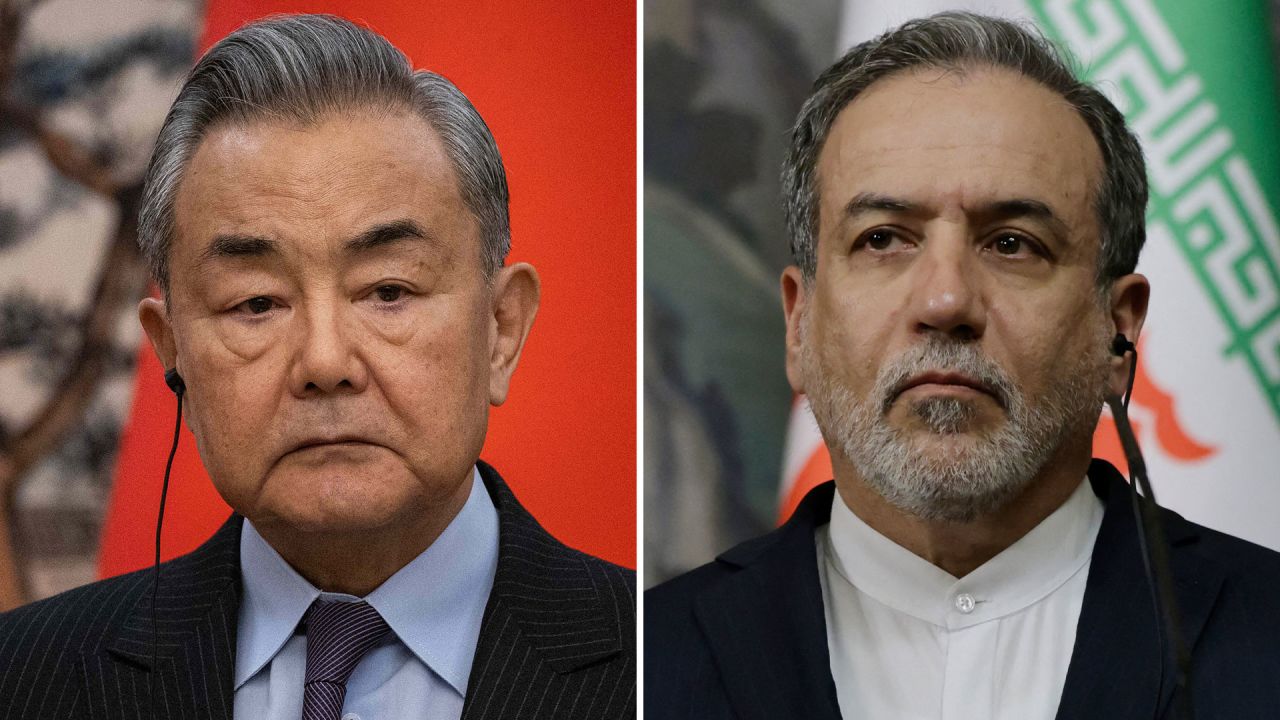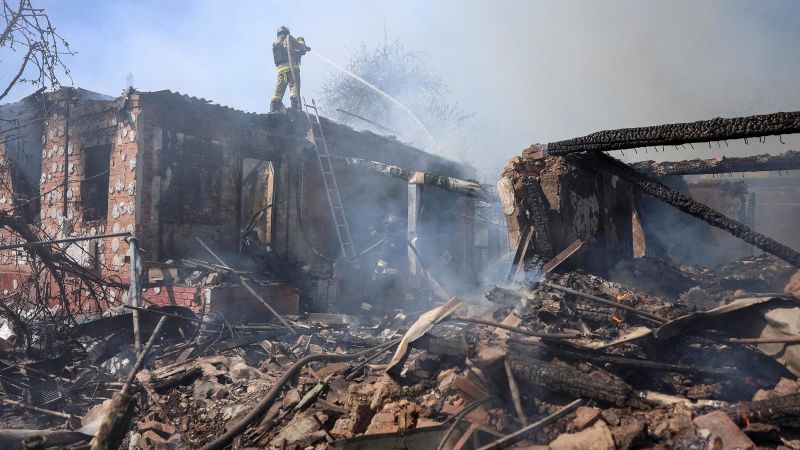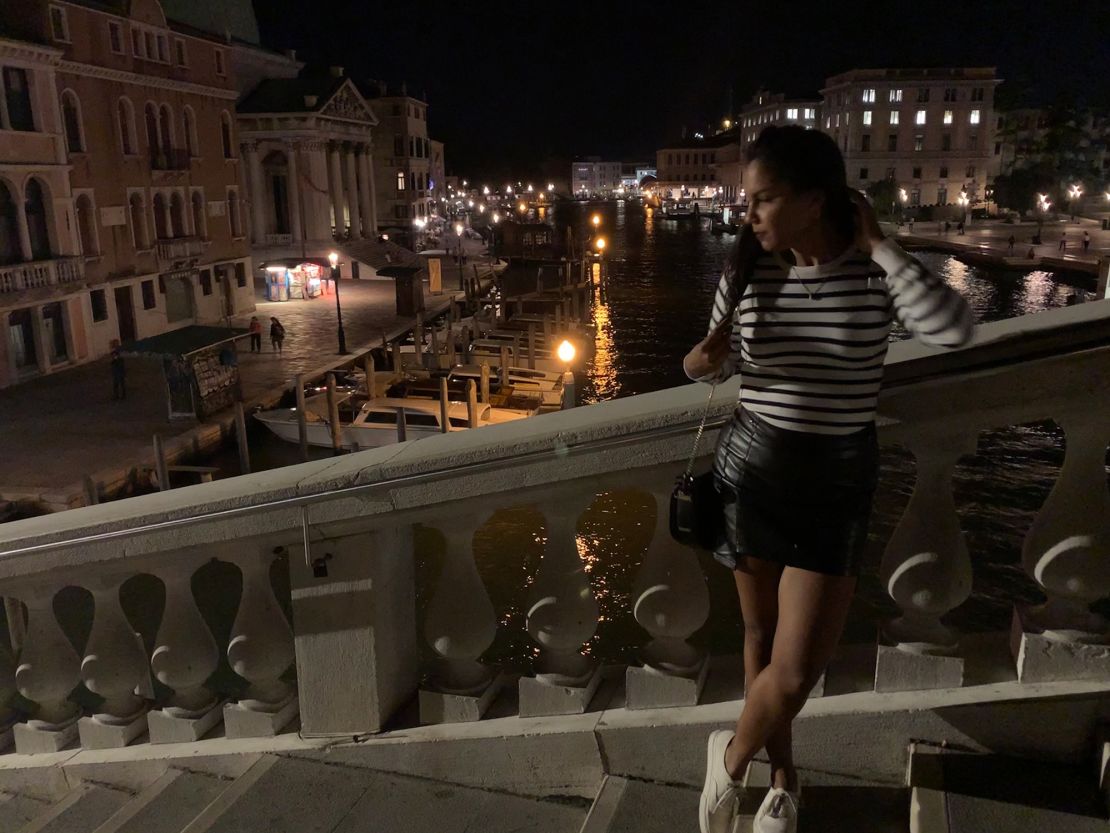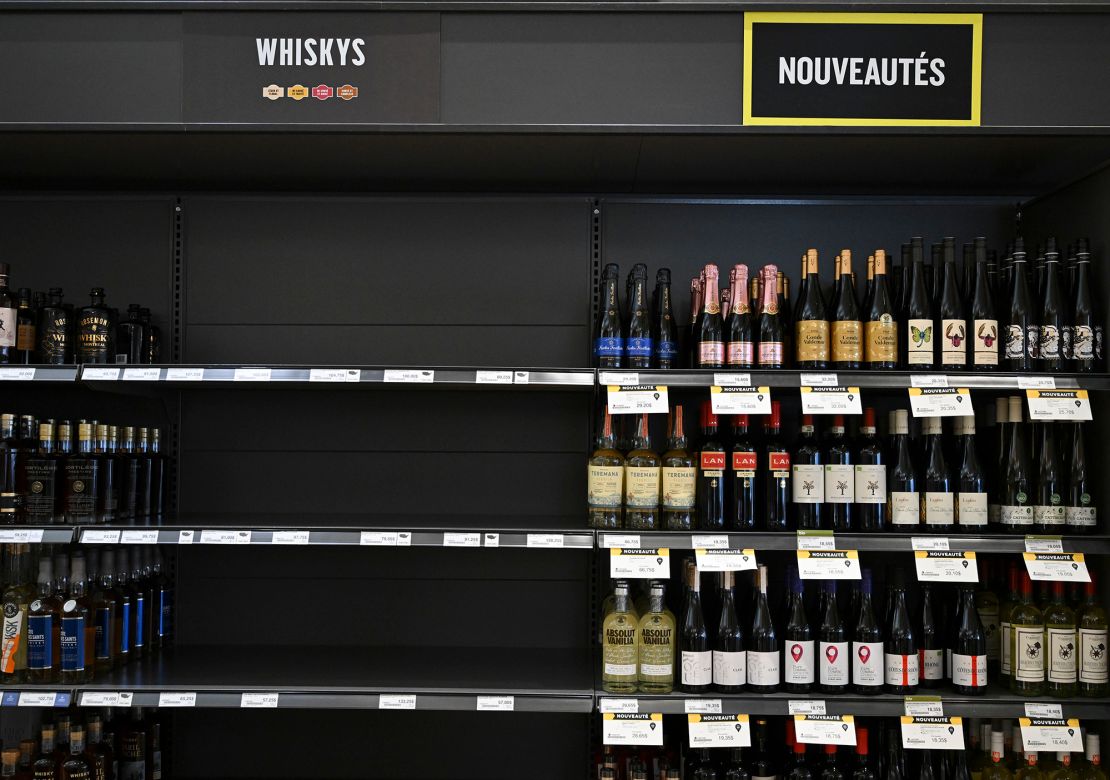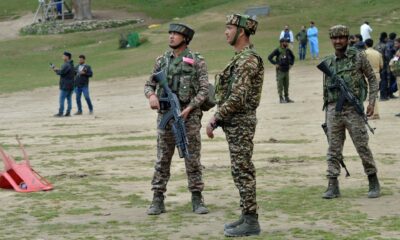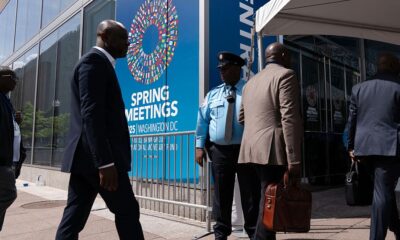CNN
—
Some US allies are highly alarmed by the framework the Trump administration is pushing to end the Ukraine war and Europeans are bracing for the outcome of another round of high-level talks between the US and Russia, multiple diplomatic sources told CNN.
The administration’s framework, presented in Paris last week, proposes significant sacrifices from Kyiv, including US recognition of Crimea as Russian territory and Ukraine ceding large swaths of territory to Russia, according to an official familiar. Vice President JD Vance on Wednesday called “to freeze the territorial lines at some level close to where they are today.”
Asked what concessions Russia was offering on Thursday, Trump replied, “stopping the war,” suggesting that not “taking the whole country” is a “pretty big concession.”
Multiple allied diplomats said they are rattled by what the Trump administration is proposing, because they believe such a framework sends a dangerous message to Russia’s Vladimir Putin and other world leaders, including China’s Xi Jinping, that illegal conquest could be rewarded, multiple diplomats said.
“This is about the fundamental principles of international law. This is very much about our own existence and the weakening of any safeguards that my or other countries have for our own independence,” an Eastern European diplomat told CNN. They and other sources spoke on background to discuss sensitive diplomatic matters.
“If one country in Europe is currently under pressure or being forced to give up parts of its own legal territory, territory that has been that has been recognized as part of Ukraine … if one country in Europe is forced to do that, no country in Europe or elsewhere can feel safe, NATO or no NATO,” the diplomat said.
The proposal for a de-facto US recognition of Crimea as part of Russia would reverse years of US policy affirming that, despite Russian occupation, Crimea is Ukrainian territory. European officials say they would not follow suit – leaving the US isolated.
Asian allies too are growing concerned about an end of war agreement that would reward Russia after the deadly conflict.
In private discussions with US partners, Asian diplomats have clearly articulated their concerns about the global implications of a settlement that violates Ukraine’s borders.
“China is watching. We have told the Trump administration that. We are worried about the message they might take away from any end to the war that appears to award Russia for the bloodshed,” said one Asian diplomat.
All eyes are now on the expected meeting between special envoy Steve Witkoff and Putin on Friday, which comes after sources say progress was made in talks with European, Ukrainian and US officials in London Wednesday. However, many Europeans fear that the progress might not be fast enough to satisfy Trump’s ambitions for a quick end to the war.
There are also concerns about what kind of additional promises Putin may make to Witkoff to garner favor with the US as European leaders warn that the Russian president is not to be trusted.
Officials are wondering what level of pressure will be applied on Witkoff’s fourth trip to Russia given the US’ desire for a quick end to the war and the US envoy’s past echoing of Putin’s arguments.
Trump on Thursday morning expressed dissatisfaction with the Russian leader after a deadly barrage of Russian missile strikes on Kyiv, saying that they were “not necessary, and very bad timing.”
“Vladimir, STOP! 5000 soldiers a week are dying. Lets get the Peace Deal DONE!,” he wrote on TruthSocial.
Hours later, however, the US president said he believed both Russia and Ukraine want peace.
However, Trump has lashed out at Ukraine’s leader Volodymyr Zelensky, on far more occasions using much stronger language than when he has criticized Putin.
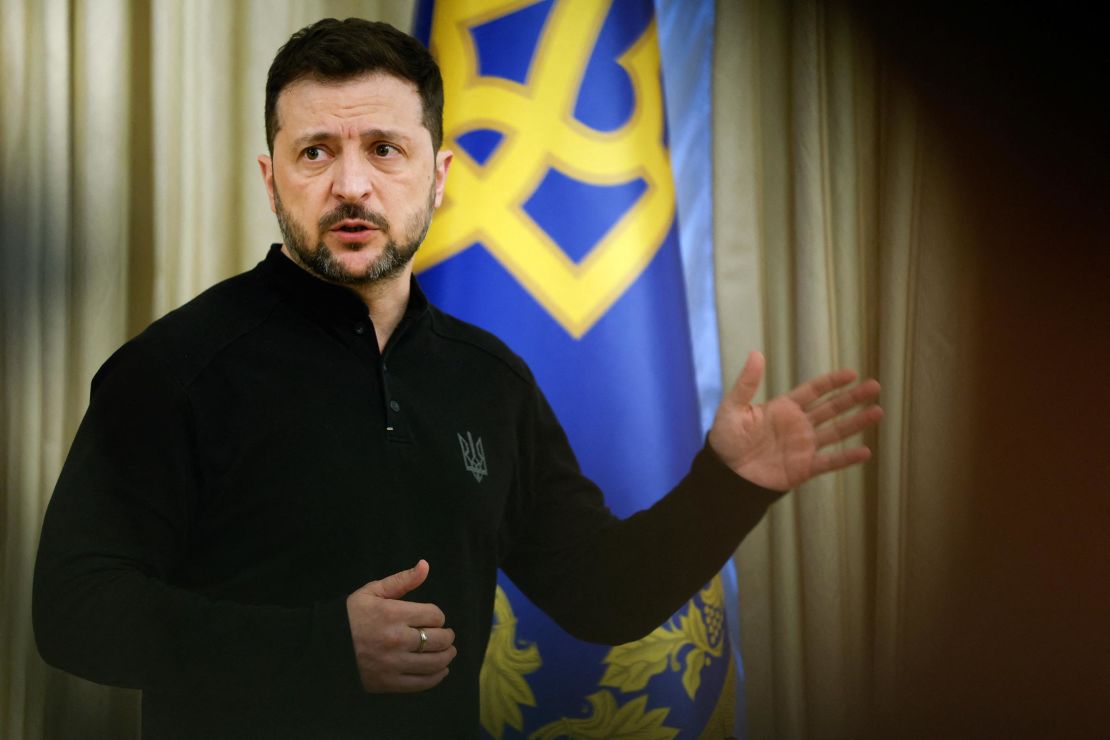
Meanwhile, even though the framework on the table has many allies deeply uneasy, negotiators have touted progress in the high-stakes diplomatic talks this week, including steps taken by the Ukrainians.
“We got [the Ukrainians] to a point where there will be conversations about territory,” said a European official familiar with the discussions, following the full day of meetings on Wednesday in London attended by senior officials from Ukraine, Germany, the United Kingdom, France and the US envoy to Ukraine, Keith Kellogg.
Just that evolution in thinking was progress, the official said, noting they “managed to convince the Ukrainians to convince themselves to get in a more US administration-friendly position.”
Kellogg believed the talks to be “candid, positive and productive,” he told CNN.
Kellogg was the highest-ranking US official at the table for the talks, after the Trump administration pulled back plans for Secretary of State Marco Rubio to attend with the expectation that the meetings were not going to be decisive.
The Germans, French, and British said in a joint statement that “significant progress was made on reaching a common position on next steps.”
“The Ukrainians are coming around and understand the situation, even though they have red lines they cannot cross,” said a German official when asked how flexible the Ukrainians are being on territorial matters.
The British government has been working with the Ukrainians to try to move forward on the US framework, a second European official said, noting that it would be backed by security guarantees that are regularly being discussed by European allies, including potential troops in Ukraine. Russia has rejected such a prospect and Trump has said no American forces would go to Ukraine.
“There is a realpolitik reality: any deal that can get Russia on board will look unfavorable to the Ukrainians. But within reason the Ukrainians will have to come to terms with something that may be second best to a deal they would have wanted two years ago,” another European diplomat said. “That is just where we are.”
However, even if Zelensky were to get on board with a painful proposal that sees significant land concessions – a move that one Ukrainian lawmaker said would be “political suicide” – it would not be accepted by Ukrainian parliament, the lawmaker said.

Some have noted that there doesn’t seem to be a US strategy for implementing a potential deal and Washington may be barreling past the idea of a ceasefire in order to simply end the conflict as quickly as possible.
“The American position is clear: take it or leave it, this is where we are,” the first European official said. “The Ukrainian position – and to some extent ours – is we accept there needs to be territorial negotiations but when does that come?”
What exactly the US administration is arguing for at the moment, beyond a halt to the fighting, remains unclear. More than a month after calling for an immediate ceasefire – which Russia rejected – it appears to be trying to leap-frog ahead to the far more complicated prospect of nailing down the contours of a permanent peace.
“At this juncture, we judge that getting agreement on key terms now is the most expeditious way to achieve the core objective” said one US official familiar with the months-long back and forth who criticized the administration’s lack of strategic approach, calling it “somewhat directionless, rudderless, confused.”
“The diplomacy has been very ad hoc. The confusion over who does what on the file is as pronounced as ever,” said the official. “People seem to accept the chaos.”


